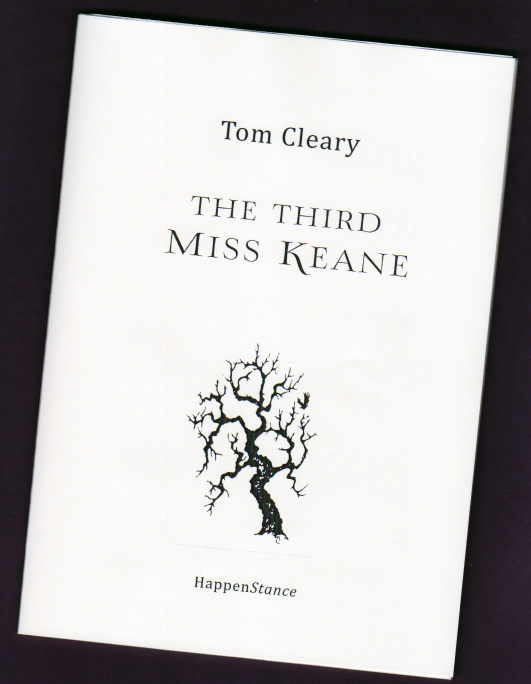The Naming of Cancer by Tracey S Rosenberg
-Reviewed by Fiona Sinclair–
The title and acknowledgements to this collection suggest a sequence of poems following the treatment and aftermath of a cancer diagnosis.
This in itself may appear depressing even off putting and indeed it contains some uncompromising poems about the realities of the disease including its effects not just on the patient but also the family. But what actually lies at the heart of the collection is an inspirational love story between the persona’s father and mother that survives despite the ravages of the disease.
This love affair delineated in such poems as ‘Widower’, ‘Gardens’, ‘Name’ are a demonstration of the vows ‘In sickness and in health’ and ‘Until death us do part’. Such love is shown in a husband’s tender nursing of his ailing wife. In the poem ‘Steadfast‘ Rosenberg deploys two clear sets of lexis, there are verbs like ‘sooths’ used to describe a husband’s gentle nursing of his wife which are in sharp contrast to the words ‘wretches, contorts’ that reveal the effects of the disease on the woman. The harsh realities of cancer are revealed in stark phrasing such as ‘coaxed her cracked mouth with a violet sweet’ the verb ‘coaxed ‘suggests the delicacy of his ministrations whilst the ‘cracked mouth’ creates a vivid image of a body in decay. These particular images come from ‘Gardener’ a Petrarchan sonnet whose form hints at the love between the two characters. The form also serves to highlight Rosenberg’s skill at subtle rhyming schemes that do not intrude on the sensitive subject matter. Indeed throughout the collection the poet demonstrates her flair for a range of poetic styles including a villanelle. There is a sense that she employs these as a means of reining in emotion on a subject matter that could easily run riot on the page.
The poem ‘Touch’ is an excellent counter balance to the narrative of physical decay. In a collection of poems focusing on the ways in which a body becomes redacted to animal pain, we have a poem focusing on the sexual contact once enjoyed by the couple. Sensory words such as ‘stroke and delve’ speak of the woman gladly giving her body to her man ’she always reshaped / to let him in’ the poem then skilfully contrasts this bodily pleasure with the almost rape like penetration of her body by the surgeon and indeed the cancer.
Two of the most impressive poems focus on our discomfort at funerals. They highlight well our awkwardness around the bereaved; the coldness of a Anglican service that is all’ ’Black Hats’ and ‘hymns half-remembered from school’ The use of the collective ‘We‘ here suggesting a family that at heart is united yet as with many families only meets at births , deaths and marriages. Even here there are small acts of defiance against the disease and its outcome ‘though we defiantly adorn with bright scarves‘. This poem contains a magnificent tribute to a loved one ‘we honour the earth with her presence’ this simple sentence is a powerful evocation of the love felt for the deceased. In the following poem ‘Receiving line’, (these poems are strategically placed throughout the collection), there is an accurate dramatization of going through the motions of greeting guests attending a funeral ‘thank you, sorry, very kind…’ This enacts well an occasion when as humans we are really lost for words. Yet again, as with the previous poem there is a demonstration of the human spirit in the black humour of an elderly lady who ‘leans forward to seize his arm and hiss: / we really must stop meeting like this’ here a rhyming couplet is effectively used to relieve the mood.
Cancer and the pathology of the illness are dealt with at the beginning of the collection. In a sense it sets the verse in context. The poems are matter of fact and reveal the horrific reality of chemotherapy and surgery. They emphasise the dehumanisation and disempowerment felt by both the patient and family where a loved one is consigned to hospital. ‘Cancer Villanelle’ specifically deals with this reality. Rosenberg does well to avoid an excess of emotion by employing lists that conjure up the details of a hospital stay ‘Bloods, infections, bruises, vomit’. The titular poem ‘The naming of cancer’ is again uncompromising and non-sentimental . The persona seeks to label the various manifestations of the disease as if naming an enemy: ‘leukaemia, myeloma…’ This is not to say the poem is coldly scientific, it shifts from this almost text book naming of the disease to its human ramifications in the character of an elderly victim in the next bed for whom cancer is not abstract but a reality.
The idea of medical abstraction is examined in the following poem ‘The Oncologist’s Nightmare’ It imagines a dialogue between the patient’s partner ‘Why can’t you tell me what’s wrong with my wife?’ and the surgeon who lacks empathy or any sense of bedside manner and hides behind incomprehensible medical jargon ‘HCD, CEA, Metastatic’, a situation that will resonate with many readers.
Indeed this collection will chime with anyone whose loved ones have been through the ordeal of cancer. Whilst it does look the disease square in the face, it also has at its heart an inspirational love story which the cancer serves to deepen rather than destroy.




